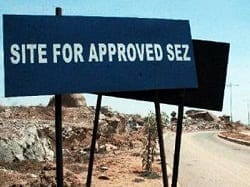Progress is being made in terms of establishing ten Special Economic Zones. This is according to the Portfolio Committee on Trade and following a briefing from the Department of Trade and Industry (dti).
The Committee was informed that all preparations for the new SEZs should be completed within the next six months.The ten SEZs will be in Mthatha in the Eastern Cape, Harrismith in the Free State, Johannesburg in Gauteng, Kings Shaka International Airport (the Dube port) in KwaZulu-Natal, Tubatse and Musina in Limpopo, Nkomati in Mpumalanga, Upington in the Northern Cape, Rustenburg in North West and Atlantis in the Western Cape. The Committee advised the Department not to focus on one sector of the economy with the new SEZs because if that sector collapsed, the SEZs would also face the same fate. The Committee was also assured that the existing five SEZs had ‘turned the corner’. Currently, Coega has 18 investors. There has been a clear agreement on repairs for oil and gas in Saldanha. In Richards Bay, ship repairs will occur and new vessels will be built.
SEZs are defined as geographically designated areas of a country set aside for specifically targeted economic activities, supported through special arrangements and support systems that are often different from those that apply in the rest of the country. SEZs are policy tools that are used to promote rapid economic growth by using support measures, such as incentives, to attract targeted foreign and domestic investments.
There are different types of SEZs that will be designated in South Africa in terms of the SEZ Act 16 2014. These include a free port, free trade zones, Industrial Development Zone and Sector development/Specialised zones. The Minister of the dti is currently in the process of appointing an SEZ Advisory Board, in terms of S7(1)(2) of the Act. The dti is currently developing SEZ Regulations in consultation with various departments, including National Treasury and South African Revenue Services (SARS), and it is envisaged that the process will be completed by October 2014. The SEZ Act will become effective once the SEZ Regulations are completed.






